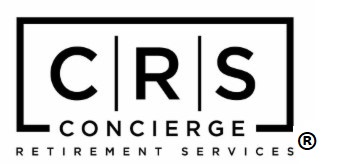
Eric, the CFO of a new client, came into my office. “Our company’s 401(k) plan has been under examination by the IRS for a year and a half! We hired a competent ERISA attorney, but the audit shows no signs of ending. The IRS is pushing to extend the audit into prior years and into one current year. What a nightmare!”
“Wow,” I said. “I’ve never seen an IRS audit go on for more than a year. What brought this on?”
“Before we hired your firm, we were with one of the major payroll providers. They pitched us on using their recordkeeping platform and on hiring them to be the plan’s TPA. The thought of one-stop shopping was attractive, and we were with them for years. Everything went smoothly … until we received an IRS examination letter.
“At the payroll provider’s recommendation, we hired the attorney. Then, as the audit unfolded, the IRS began to request more and more information. That was when things started to go off the rails.”
“Off the rails how?” I asked.
“It turns out our payroll provider was using the wrong definition of ‘compensation.’ The plan was supposed to include ‘all employee compensation’ for salary deferrals, matching contributions, et cetera, but they excluded bonuses. Years worth of matching contributions were understated.”
I shook my head. “Why would a plan administrator not follow the terms of the plan, especially since they were the ones doing your payroll?”
Eric took a deep breath. “I have no idea, but it gets worse. They filled out the plan’s adoption agreement and I never thought to review it. Without checking with us, they included two problematic provisions: They checked the box to auto-enroll employees into the plan whether they wanted to participate or not.
“And they compounded the problem by adding an auto-escalation clause. Each year, employees’ deferral percentages were supposed to increase by 1%.
“And then they administered the plan as if these two provisions did not exist.”
“You mean…”
Eric nodded. “That’s right. For years, employees were brought into the plan without our knowledge or their consent. And because of the auto-enrollment and the auto-escalation clause, which we never wanted in the first place, employer matching contributions going back I-don’t-know-how-far have all been understated.
“And many of our ex-employees had understated salary deferrals and matching contributions. Some have been gone for years! How will we fix these closed accounts?”
“This all came out because of the audit. And to make things worse, the payroll company has been slow to respond to the IRS. A simple request like payroll data—which should take no more than a couple of days to respond to—would take more than a month. And the information would only be provided after multiple requests. Because of their errors and slow response time, the IRS is expanding the audit, which is increasing the time and expense required to get through it.
“I wish I’d come to you earlier. Is there anything you can do?”
“Well Eric, the good news is we specialize in cleaning up these kinds of messes—and they happen more often than you’d think … especially when payroll companies pose as qualified plan managers. But the IRS will probably become more cooperative when they see you have someone much more responsive handling their requests. And they have other things to do; there’s no reason to drag an audit out for years. Let my team take over the audit so you can focus on running your business.”
The only thing worse than an IRS audit is a mismanaged IRS audit. If your company has received “the letter,” place your audit in the hands of the professionals at Concierge Retirement Services.
